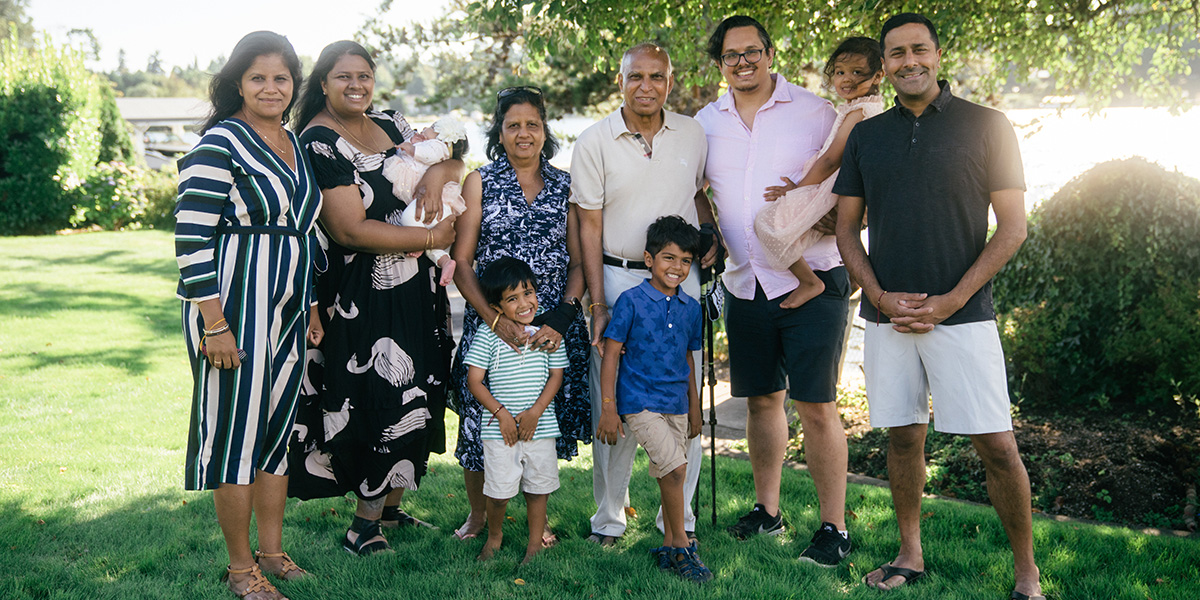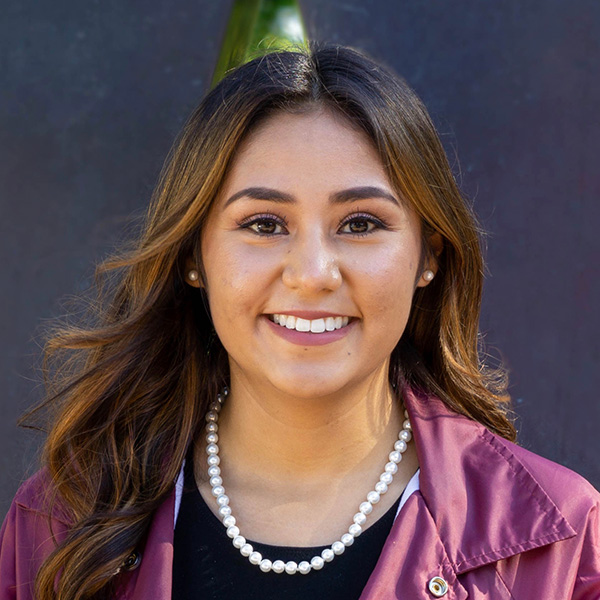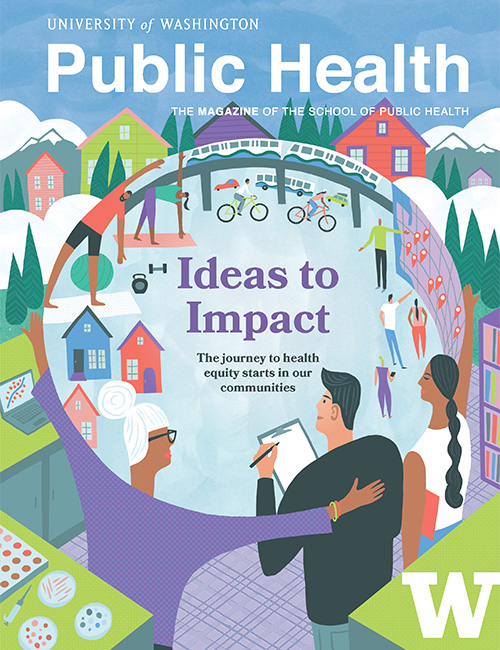Remala Family Foundation endows fellowship to increase diversity of MPH students
WRITTEN BY STARRE VARTAN
FAMILY PHOTO BY JAKE MAGRAW @jmdmcreative

Before Miriam Flores came to the Master of Public Health (MPH) program at the University of Washington School of Public Health, she case-managed parents and pregnant women who were agricultural workers at a community health center in Othello, Wash. Many spoke an Indigenous Mexican language, Mixtec, and weren’t proficient in Spanish or English. Flores, who is also Mexican and did asparagus weeding when she was younger, became a trusted source as she shared information about prenatal topics, child development and health education with the parents-to-be in Othello.

“The community faced so many challenges — language barriers, access to health care, deportation or fear of deportation, and lack of affordable housing,” says Flores. “I realized I could better help communities like this by pursuing a master’s degree in Maternal and Child Health.”
It’s exactly that kind of work that the Remala family — Rao and Satya Remala and their daughters Srilata and Srilakshmi — wants to see more of in the field of public health. That’s why the Remala Family Foundation recently established an endowment in the School, specifically for graduate students pursuing their MPH. They want this funding to support students from underserved backgrounds — like those who are among the first generation in their family to attend college or have diverse lived experiences.
The Remala family have made direct and impactful giving part of their family mission. “Giving endowments is in our DNA,” says Rao, who credits education with his success. From a small town in India, he studied there through his master’s degree, and then worked to develop his country’s first microcomputer in 1978. He later attended the University of Washington to pursue his PhD in computer science before joining Microsoft in 1981 as one of the company’s first 50 hires. During his 23 years at Microsoft, holding a variety of positions, he helped develop and manage early versions of the Windows operating system, until retiring in 2004.
"If our endowment can fill the gap in someone's education to make it more accessible, that's really fantastic."
Srilata and Srilakshmi followed their father’s path, prioritizing education and the whole family shares a commitment to educational and public health advocacy and philanthropy. Elder sister Srilakshmi serves as a UW College of Education ambassador where the family also established an endowment to diversify the education workforce in the STEM fields.
Rao hasn’t forgotten his roots; one of the Remala Family Foundation’s projects is building an eye hospital in his home village in Andhra Pradesh. Those roots inform the work their foundation does at the UW, too. “Immigrant families work really hard and want their families to succeed,” says Srilata. “That ties back to this endowment where we're trying to create more opportunities for people of color.”
Srilata has first-hand knowledge of these dynamics, as the founder of the Maternal Health Coalition, an organization that focuses on “Ensuring all pregnant and parenting people have access to just and equitable healthcare.” She’s passionate about this subject, especially following the birth of her first child, and thinks it’s imperative to support and empower underrepresented people to fill leadership roles in public health to ensure healthier outcomes for all people.
“I think part of the problem is that [the Maternal and Child Health field] has really been directed by people who don't understand what Black and Brown mothers go through, and what they feel when they are in these situations where they're not being seen or heard. So one huge thing that we're pushing for is more people of color, especially Black and Brown women, to be trained in maternal and child health services,” says Srilata. Historically, the cost of education has been a barrier to these populations, which is where the Remala family endowment comes into play. “If our endowment can fill the gap in someone’s education to make it more accessible, that’s really fantastic,” says Srilata.
The Remalas’ goal aligns with the values of the School and the objective of its Campaign for Students, which aims to attract and retain a diverse, equity-driven student body by increasing private financial support.
Flores, the MPH graduate student focusing on epidemiology, has seen the same gap Srilata seeks to address in her own work — and that’s informed her choices. “My plan is to finish the MPH program, and if possible, continue my education through a PhD and my epidemiologic research in the areas of pesticide exposure among agricultural workers — specifically among women, pregnant women and their children,” she says. She also hopes to one day open a community health center.
It’s these dynamics that prove that every gift matters, says Rao, who sometimes considers his family’s impact in light of some of the other big charitable organizations in the Seattle area: “The Gates Foundation and Bezos — they're doing amazing work all over the world. Sometimes we ask ourselves, with a small foundation, what kind of impact can we make? But if we can provide free education for one woman of color, and she is going to go and make such an impact in the community — it does make a lot of difference.”
If you are interested in creating your own legacy in the UW School of Public Health, please contact Megan Kagel, associate dean for advancement, at mkingram@uw.edu or 206-616-7197.
